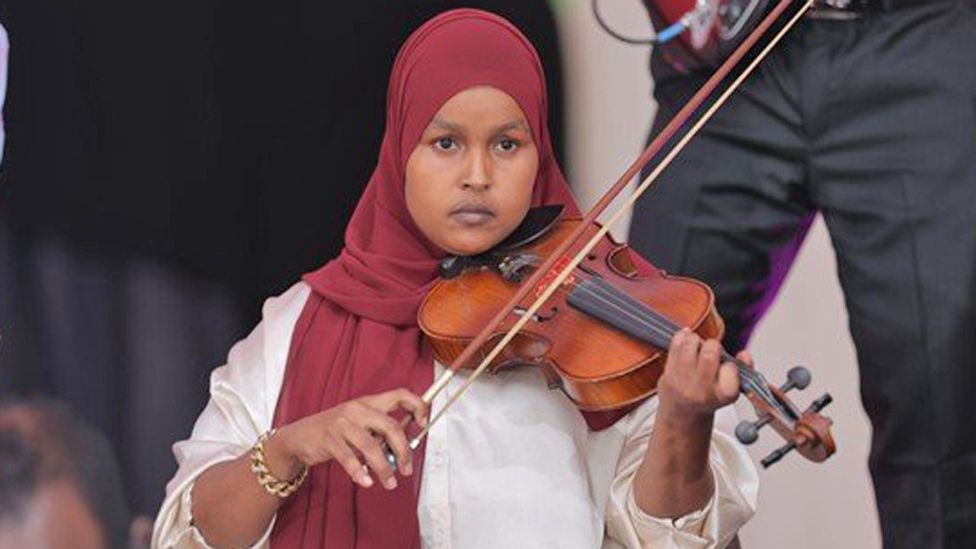-

-
-
Loading

Loading

Maryan Ali Mohamed, a 33-year-old woman from Somalia, had always dreamed of performing on stage. Despite growing up during the country's civil war, she spent hours imitating musicians on television and hoped to one day master an instrument. In 2019, her dream became a reality when she picked up her first violin. Now, Maryan is part of a group of 40 musicians who make up the Somali orchestra. Somalia does not have an official national orchestra, but for the first time, a group of musicians came together to form an ensemble for a series of televised performances. Men and women dressed in suits and satin were seen playing trumpets, drums, and ouds - a traditional string instrument. The performances, organized by Astaan TV, aimed to revive Somali music and were carefully recorded and broadcasted online and on local TV. This project brought together musicians from across the country, including both experienced instrumentalists and emerging talents like Maryan. Being part of such a large-scale orchestra was a new experience for her, as she usually played on her own or with a few others. She began violin lessons as part of a community program in Mogadishu and now practices using YouTube videos. Since the outbreak of the civil war in 1991, Somalia has faced political instability and conflict, which has also affected cultural institutions. The National Theatre in Mogadishu, once a vibrant hub for plays, musical performances, and film festivals, was caught in the crossfire between rival militias during the war. It has now reopened and hosts various events, including this year's Mogadishu Book Fair. The revival of cultural institutions and exports is a positive sign for Somalia, with the return of cinemas, art exhibitions, and Somali TV shows indicating a renewed focus on the country's rich culture. In Hargeisa, the capital of Somaliland, live music nights featuring traditional Somali music and food are increasingly popular, contributing to the preservation and sharing of the country's musical heritage. Dr. Jama Musse Jama, the director of the Hargeisa Cultural Centre, emphasizes the importance of documenting Somali music and creating tangible records for future generations to appreciate. He explains that Somali music is not well archived, relying mostly on memory, so the televised orchestra performances are significant in preserving and celebrating Somali music. Overall, the Somali orchestra performances and the reopening of cultural institutions symbolize a victory for Somali music and culture, helping to revive and preserve it for generations to come.